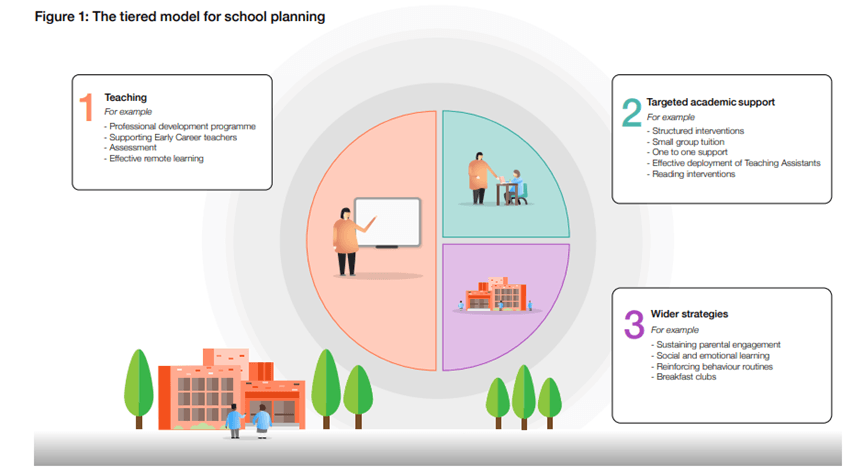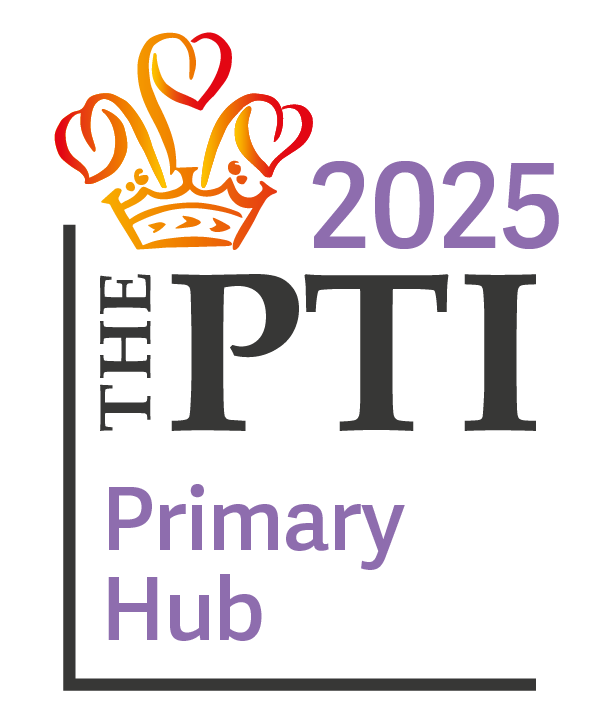Pupil Premium In Leeds
Funding to assist low-income families
What is The Pupil Premium?
Pupil premium is funding to improve education outcomes for disadvantaged pupils in schools in England. Evidence shows that disadvantaged children generally face additional challenges in reaching their potential at school and often do not perform as well as other pupils.
The Pupil Premium is allocated to schools and academies with pupils on roll that are known to have been eligible for Free School Meals at any time in the last six years (FSM6); Children who are Looked After (CLA); and those of Service Personnel.
It is for schools to decide how the additional funding is spent, provided it is used to close the gap between the achievement of pupils who receive the Pupil Premium and their peers.
Department for Education (DfE) Expectations:
Evidence suggests that pupil premium spending is most effective when schools use a tiered approach, targeting spending across 3 areas, with a particular focus on teaching.
- Teaching
- Investing in high-quality teaching, for example:
- Training and professional development for teachers
- Recruitment and retention
- Support for teachers early in their careers
- Targeted academic support - Additional support for some pupils focused on their specific needs, for example:
- One-to-one tuition
- Small group tuition
- Speech and language therapy
- Wider approaches - Support for non-academic issues that impact success in school, such as attendance, behaviour and social and emotional challenges. For example:
- School breakfast clubs
- Counselling to support emotional health and wellbeing
- Help with the cost of educational trips or visits
Who is entitled to Pupil Premium?
Low-income families may be entitled to a benefit known as Free School Meals (FSM).
You can apply for school meals if you receive:
- Income Support
- Income Based Jobseekers Allowance
- Income Related Employment and Support Allowance
- Child Tax Credit with an annual income of less than £16,190, provided they are not receiving Working Tax Credit
- The ‘Guaranteed’ element of the State Pension Credit
- Support under Part VI of the Immigration and Asylum Act 1999 (you will need to apply directly to the school not Bradford Council)
- Working Tax Credit run-on (paid for 4 weeks after you stop qualifying for Working Tax Credit)
- Universal Credit
If you wish to apply, please click here to access the online form on the Leeds City Council’s website.
The table below shows how much pupil premium funding schools and local authorities receive for each eligible child:
| Pupil eligibility criteria | Amount of funding for each primary-aged pupil per year | Amount of funding for each secondary-aged pupil per year | Funding is paid to |
|---|---|---|---|
| Pupils who are eligible for free school meals, or have been eligible in the past 6 years | £1345 | £955 | School |
| Pupils who have been adopted from care or have left care | £2345 | £2345 | School |
| Children who are looked after by the local authority | £2345 | £2345 | Local authority |
School meals are free for Reception, Year 1, Year 2 – Do I still need to apply?
All children in Reception, Year 1 and Year 2 get free school meals, but if you receive one of the benefits from the list above you may also get help with:
- the cost of residential school trips (speak to your school about this)
- travel costs to school
- school uniform costs (speak to your school about this)
- council run music lessons at school
Registering for free meals could raise an extra £1,320 for your child’s school, to fund valuable support like extra tuition, additional teaching staff or after school activities. This additional money is available from central government for every child whose parent is receiving one of the welfare benefits listed in the form. It is therefore important to sign up for free school meals, even if your child is in Reception, Year 1 and Year 2, so that your child’s school receives as much funding as possible.
What data has been used to inform the Alder Tree Primary Academy 2021/22 Pupil Premium Spend?
Alder Tree Primary’s Pupil Premium strategy has been based on the EEF’s ‘Guide to supporting School planning’, the EEF’s ‘Guide to the Pupil Premium’ and careful assessment of:
- Our ambitious curriculum
- Attendance data and persistence absences
- Teacher feedback on levels of pupils' engagement and participation
- Behaviour incidents and exclusion data
- Information on pupil well-being, mental health and safeguarding
- Access to technology and curricular materials

Alder Tree Primary Academy Pupil Premium Key Principles
List of Services
-
Individualised ApproachList Item 1
The support put in place for pupils is designed to meet their individual needs. Some support maybe temporary; some will stay in place for longer. Interventions will be monitored and reviewed regularly to ensure maximum impact. No single intervention will provide a complete solution to a child’s needs. Consequently, our approaches have many elements and are based on the specific and individualised needs of the children within our school community. In making provision for socially disadvantaged students, we recognise that not all our students who are, or have been in receipt of Free School Meals will be socially disadvantaged. Likewise, we recognise that not all students who are socially disadvantaged have been registered for Free School Meals. Wherever possible these children will also benefit from the additional funding for Pupil Premium. This provides the best opportunity for all pupils to succeed.
-
Relationship BasedList Item 2
At Alder Tree Primary we connect with our pupils and their families on an individual basis in order to understand their context. This in turn informs teaching approaches and whole school emotional wellbeing strategy. Teaching staff work closely with the pastoral teams to ensure that families are supported in a co-ordinated way.
-
High ExpectationsList Item 3
We ensure appropriate provision and teaching and learning opportunities meet the needs of all our pupils, regardless of background or educational need, and aim to ensure the highest possible academic outcomes for every child. We ensure that we have the highest expectations of all our children irrespective of backgrounds or barriers to learning, in line with the High-Performance Learning ethos. We are mindful of not lowering expectations and aspirations for disadvantaged pupils, staff at all levels nurture and support all pupils to take pride in their individual achievements.
-
Evaluative ApproachList Item 4
A robust process and evaluation framework has been adopted by the Academy, involving all stakeholders. Such a robust evaluative approach allows leaders to accurately assess the impact and effectiveness of the Pupil Premium strategy, Changes and adaptations to practice and strategy can then be made in a timely manner to ensure overall positive impact. The Local Accountability Board will approve any Pupil Premium spending and review the impact of any spending, key Local Accountability Board members will be invited to be involved in the ongoing evaluation of the Pupil Premium strategy.
-
Evidence Informed
Research evidence is used to inform decision making. It is used by leaders to challenge assumptions and beliefs, not simply to justify decisions taken.
-
Quality First Teaching
At Alder Tree Primary our first and main focus in tackling underperformance of disadvantaged students is to ensure that all learners are taught by good or better teachers to ensure our children meet or exceed age related expectations. Teachers and co-professionals should have a shared understanding of the components of inclusive quality first teaching, specific to the subject they are delivering and their phase, with phase leaders ensuring that their daily practice and that of the teachers in their teams is inclusive and high quality for all. There should be memorable learning experiences in which all pupils, particularly the disadvantaged, are expected and encouraged to participate.
-
Independent Learning
Teaching and learning strategies at Alder Tree Primary aim to support independence and self-regulated learning through scaffolding. Our children should be explicitly taught how to effectively plan, monitor and evaluate their work. The introduction of High-Performance Learning as a key Teaching and Learning strategy serves to improve pupils’ self-regulation and metacognition skills.
-
Diagnostic Assessment
Diagnostic and formative assessment used by Alder Tree Primary Academy will be used to shape strategy and activity, not labels and assumptions about disadvantage. Regular formative assessment opportunities should be used to reshape learning and adjust teaching responsively so that misconceptions and gaps in learning can be addressed in a timely manner. As such, children develop belief in themselves as they have seen success in their learning.
-
High Quality Interventions
Sometimes additional intervention (pastoral, social and academic) is needed to ensure the performance gap is closed between different groups of students; data is carefully analysed to ensure intervention is carefully focused where it is most needed.
Alder Tree Primary Academy Pupil Premium Strategy Statement
Each unit of work at Alder Tree Primary Academy is skilfully tailored to fulfil the needs of our pupils. The following four attributes have been identified by our staff as key priority areas, likewise they serve to improve the life chances of the disadvantaged.
- Opportunity: We will provide our children with the opportunities that will enrich their lives and provide a clear context for what they are learning in school.
- Communication: We will provide pupils with the chance to improve their vocabulary and oracy skills by identifying where the children can present, persuade or discuss their topic with their peers or others in the community in a confident and respectful way.
- Empowerment: We will help guide the children into understanding that they have a voice and can make informed choices to help shape their community. The curriculum will help the children understand that they can make a difference to their world.
- Connections: We will provide our children with the chance to connect to one another in their class, in the school and in the wider community.
All members of staff and governors are committed to meeting the pastoral, social and academic needs of every child irrespective of background. Alder Tree Primary Academy will adopt a responsive approach to common challenges and individual needs, rooted in robust diagnostic assessment, not assumptions about the impact of disadvantage. The approaches we have adopted complement each other to help pupils excel. To ensure they are effective we will follow the Alder Tree Primary Academy pupil premium key principles as outlined above.
Ultimate Objectives of the Pupil Premium Strategy
- That all children, irrespective of background or challenges faced, make good progress and achieve Age Related Expectations (ARE).
- That all children, irrespective of background or challenges faced, are well supported in terms of their personal wellbeing and mental health.
- That all children, irrespective of background or challenges faced, have access to inspiring and memorable learning experiences which enhance their cultural capital and life opportunities.
Impact of the Pupil Premium
The impact of intervention for the Pupil Premium students will be reported to and monitored by the Local Accountability Board and academy leaders. The downloadable document shows the impact and intended impact that Pupil Premium-funded activities are expected to deliver over the next three years.









